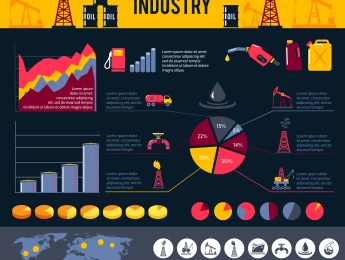Understanding pricing, trade, and the economic framework is crucial for businesses navigating the complexities of the global marketplace. This comprehensive course delves into the intricacies of pricing strategies, shedding light on the various factors influencing product and service pricing in dynamic economic environments.
Participants will gain insights into the fundamentals of international trade, exploring the impact of tariffs, quotas, and trade agreements on business operations. The course's economic framework component equips individuals with the knowledge to interpret economic indicators, anticipate market trends, and make informed business decisions.
By examining the interplay between pricing, trade dynamics, and economic factors, participants will be well-prepared to formulate strategic approaches that enhance competitiveness, mitigate risks, and capitalise on emerging opportunities in today's ever-evolving global economy.
Upon completion of this course, participants will be able to:
- Examine various oil trading markets categorised by transaction type
- Evaluate diverse contract types, including long term, spot, and forward agreements
- Gain insight into the trading processes of crude oil and petroleum products
- Acquire knowledge of the pricing mechanisms governing crude oil and its derivatives
- Grasp hedging strategies for safeguarding against price fluctuations
- Understand the principles behind financial derivatives such as Swaps and Options
This course is designed for anyone in a petroleum-based industry who is aiming to increase their knowledge and understanding of the financial market in that area. It would be most beneficial for:
- Oil & Gas Students
- Business Owners
- Financial Advisors
- Chief Financial Officers
- Traders
- Brokers
- Gas & Oil STakeholders
- Energy Industry Journalists
- Economists
- Ecologists
This course uses a variety of adult learning styles to aid full understanding and comprehension. Participants will watch videos to understand the current economic climate within the crude oil industry and work through interactive presentations to understand the trending issues and current risks of investment.
They will conduct team discussions to discuss common barriers and how the industry can increase profitability while remaining sustainable and considering the environmental aspects of the trade.
Day 5 of each course is reserved for a Q&A session, which may occur off-site. For 10-day courses, this also applies to day 10
Section 1: Trends in the Crude Oil Market
- Analysing current trends in the crude oil market.
- Impact of geopolitical factors on oil prices.
- Sustainable practices and environmental considerations.
- Technological advancements in oil extraction and exploration.
- Market dynamics and supply-demand trends.
- Future projections and scenarios for the crude oil industry.
- Regulatory changes and their influence on the market.
- Innovations in renewable energy and their impact on oil trends.
- Risk management strategies in the volatile crude oil market.
- Case studies on successful adaptation to market trends.
Section 2: Stocks, Shares & Hedging
- Fundamentals of stocks and shares in financial markets.
- Investment strategies for building and managing stock portfolios.
- Understanding the role and function of hedging in financial planning.
- Types of hedging instruments and their applications.
- Risk management through hedging techniques.
- Evaluating the impact of market trends on stock values.
- Incorporating hedging strategies into investment planning.
- Case studies on successful hedging practices.
- Regulatory considerations in stock trading and hedging.
- Practical exercises for hands-on experience in stock analysis and hedging.
Section 3: Economic Strategies within the Crude Oil Sector
- Formulating effective economic strategies in the crude oil sector.
- Analysing market trends and global economic influences.
- Maximising profitability through strategic pricing mechanisms.
- Sustainable practices and environmental considerations in economic planning.
- Geopolitical factors and their impact on economic strategies.
- Technological innovations shaping economic approaches in the sector.
- Regulatory frameworks and compliance in economic decision-making.
- Diversification strategies for resilience in changing economic landscapes.
- Evaluating investment opportunities and risk management in the crude oil sector.
Section 4: Pricing Structures & Identifying Change
- Understanding diverse pricing structures in business.
- Analysing the impact of market dynamics on pricing.
- Strategies for adapting pricing structures to change.
- Identifying indicators for necessary pricing adjustments.
- Pricing models and their application in different sectors.
- Consumer behaviour and its influence on pricing decisions.
- Competitive pricing strategies for sustainable market positioning.
- Ethical considerations in pricing structures and changes.
Section 5: The Future Oil Market & Its Limitations
- Anticipating trends in the future oil market.
- Technological advancements and their impact on the industry.
- Environmental considerations shaping the future of oil markets.
- Regulatory changes and limitations affecting the sector.
- Evaluating geopolitical influences on the future oil market.
- Strategies for navigating limitations in oil exploration and extraction.
- Sustainable practices in the evolving landscape of the oil industry.
- Diversification and alternative energy sources in the future market.
- Risk management in light of potential limitations.
Section 6: Derivative Products Including Swaps & Options
- Applications of Swaps and Options in financial markets.
- Risk management strategies using derivative instruments.
- Evaluating the advantages and limitations of Swaps and Options.
- Pricing mechanisms for Swaps and Options.
- Strategies for effective utilisation of derivative products.
- Hedging techniques with Swaps and Options.
- Regulatory considerations in derivative trading.
Upon successful completion of this training course, delegates will be awarded a Holistique Training Certificate of Completion. For those who attend and complete the online training course, a Holistique Training e-Certificate will be provided.
Holistique Training Certificates are accredited by the British Assessment Council (BAC) and The CPD Certification Service (CPD), and are certified under ISO 9001, ISO 21001, and ISO 29993 standards.
CPD credits for this course are granted by our Certificates and will be reflected on the Holistique Training Certificate of Completion. In accordance with the standards of The CPD Certification Service, one CPD credit is awarded per hour of course attendance. A maximum of 50 CPD credits can be claimed for any single course we currently offer.
- Course Code PF1-149
- Course Format Classroom, Online,
- Duration 5 days











